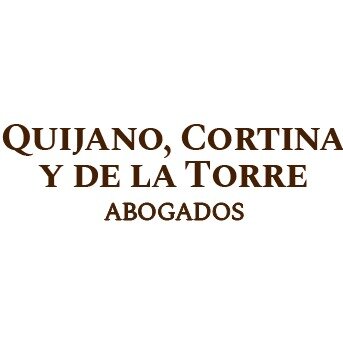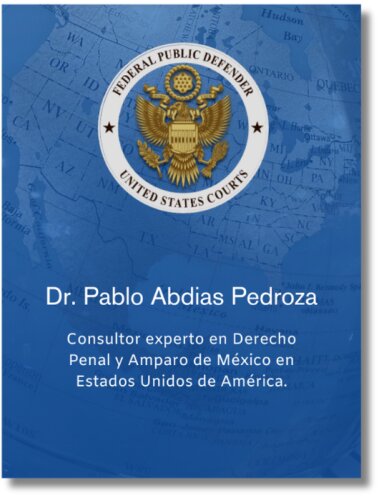Best Defamation Lawyers in Mexico
Share your needs with us, get contacted by law firms.
Free. Takes 2 min.
Or refine your search by selecting a city:
List of the best lawyers in Mexico
About Defamation Law in Mexico
Defamation in Mexico is governed by the Civil Code and the Penal Code. It is divided into two types: libel, which is a written defamation, and slander, which is a spoken defamation. Defamation laws are intended to protect individuals from false statements that harm their reputation.
Why You May Need a Lawyer
You may need a lawyer in cases of defamation if you have been falsely accused of making defamatory statements or if you have suffered harm to your reputation due to someone else's defamatory actions. A lawyer can help you navigate the legal process, gather evidence, and protect your rights.
Local Laws Overview
In Mexico, defamation is considered a civil offense rather than a criminal offense. This means that individuals can sue for damages caused by defamation. However, there are also criminal defamation laws in place that can result in fines or imprisonment.
Frequently Asked Questions
Q: What qualifies as defamation in Mexico?
A: Defamation in Mexico is the act of making false statements about someone that harm their reputation.
Q: Can opinions be considered defamatory?
A: No, opinions are generally not considered defamatory. Defamation involves making false statements of fact.
Q: Can public figures be defamed in Mexico?
A: Yes, public figures can still be defamed in Mexico, but they may have a higher burden of proof to show that the statements were made with actual malice.
Q: What are the potential penalties for defamation in Mexico?
A: Penalties for defamation in Mexico can include monetary damages, public retractions, and in severe cases, fines or imprisonment.
Q: Is there a statute of limitations for defamation cases in Mexico?
A: Yes, the statute of limitations for defamation cases in Mexico is typically one year from the date the defamatory statement was made.
Q: Can truth be a defense in a defamation case in Mexico?
A: Yes, truth is generally considered a valid defense in defamation cases in Mexico. If the statement is true, it is not considered defamatory.
Q: Can I be held liable for sharing defamatory content online in Mexico?
A: Yes, individuals can be held liable for sharing defamatory content online in Mexico. It is important to be cautious about what you share on social media and other online platforms.
Q: Can I sue for defamation if the statements were made anonymously?
A: It may be more challenging to sue for defamation if the statements were made anonymously, but it is still possible to take legal action to uncover the identity of the individual responsible.
Q: How can I prove that I have been defamed in Mexico?
A: To prove defamation in Mexico, you will need to show that a false statement was made, that it was published to a third party, and that it caused harm to your reputation.
Q: Do I need to hire a lawyer for a defamation case in Mexico?
A: While it is not required to hire a lawyer for a defamation case in Mexico, having legal representation can greatly benefit your case and ensure that your rights are protected throughout the process.
Additional Resources
If you are in need of legal advice or assistance with a defamation case in Mexico, it is recommended to contact the Mexican Bar Association or a local legal aid organization for further guidance and support.
Next Steps
If you believe you have been defamed in Mexico, it is important to gather evidence of the defamatory statements, seek legal advice from a qualified attorney, and consider taking legal action to protect your reputation and seek damages for any harm caused by the defamation.
Lawzana helps you find the best lawyers and law firms in Mexico through a curated and pre-screened list of qualified legal professionals. Our platform offers rankings and detailed profiles of attorneys and law firms, allowing you to compare based on practice areas, including Defamation, experience, and client feedback.
Each profile includes a description of the firm's areas of practice, client reviews, team members and partners, year of establishment, spoken languages, office locations, contact information, social media presence, and any published articles or resources. Most firms on our platform speak English and are experienced in both local and international legal matters.
Get a quote from top-rated law firms in Mexico — quickly, securely, and without unnecessary hassle.
Disclaimer:
The information provided on this page is for general informational purposes only and does not constitute legal advice. While we strive to ensure the accuracy and relevance of the content, legal information may change over time, and interpretations of the law can vary. You should always consult with a qualified legal professional for advice specific to your situation.
We disclaim all liability for actions taken or not taken based on the content of this page. If you believe any information is incorrect or outdated, please contact us, and we will review and update it where appropriate.
Browse defamation law firms by city in Mexico
Refine your search by selecting a city.

















